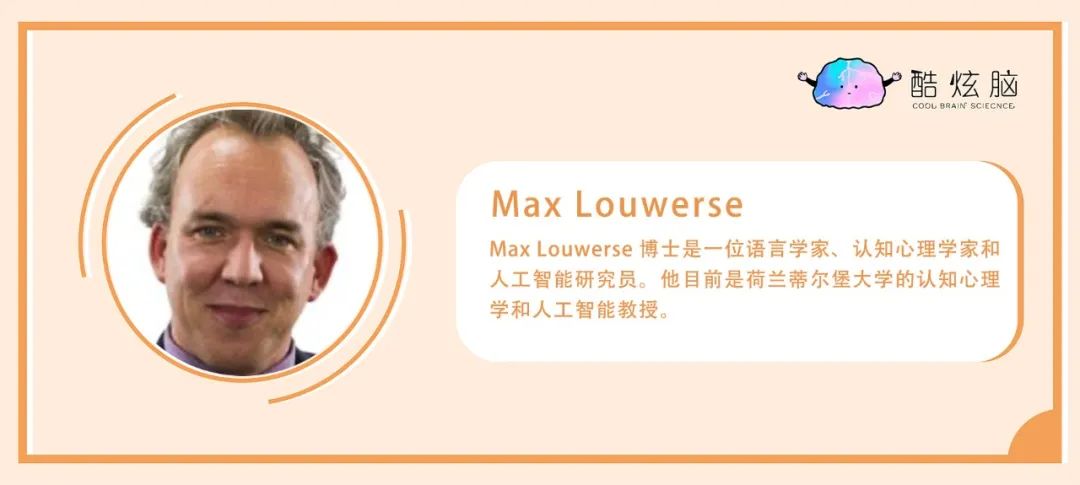Let AI think like people, cognitive scientific research is leading
Author:Cool brain Time:2022.07.20


Via: pixabay
The following is the audio of the full text of Miss Sister
Author | Max Louweers
Translation | Chunwu Thousand Layers
Rewriting | cotton bear
Grade -Cool Brain Creative
Reading | Pigeon Tsai
Artist | Old carving worm
Edit | Sales increase
1. There are amazing similarities with artificial intelligence and cognitive science. If we want to understand the mechanism behind artificial intelligence, cognitive science may help.
2. Artificial intelligence focuses on studying artificial thinking similar to human thinking.
3. Cognitive science focuses on the study of human thinking with artificial thinking as an example.
Until now, you may gradually believe that artificial intelligence (AI) can provide all opportunities that people want, and all threats that people should worry about. With the continuous spread of all news related to artificial intelligence, the sudden emergence of the new technology of artificial intelligence surprised us, and its arrival may always change society. Artificial intelligence is an independent discipline recently created. I don't deny the opportunities provided by artificial intelligence, just as I will not deny the promise provided by any other scientific disciplines or methods. Of course, I don't know nothing about the risks that artificial intelligence brings to us, because I will not ignore the risks that any technology brings to us.

VIA: "Crayon Shin new"
History of artificial intelligence (AI)
Artificial intelligence and cognitive science are very related. Artificial intelligence was the first concept proposed in a seminar held in Datmmouth College in the summer of 1956. The seminar aims to find answers to questions, such as: how to make machines abstract and concepts with language and solve problems; how to develop artificial thinking similar to human thinking and human thinking. There were 11 computer scientists who attended the meeting, including Newville and Simon, who won the Nobel Prize 20 years later.
A few weeks after Datmouth's seminar, MIT established a special interest group of information theory. Researchers who participated in this meeting with psychology, linguistics, computer science, anthropology, neuroscience and philosophy. At this meeting, problems about language, abstraction and concepts and problems also played a core role. These issues are inspired by this central issue: how do we better understand human minds by developing artificial thinking. Several researchers participating in the special interest group meeting also attended Datmouth's seminar.
The special interest group of MIT of the Massachusetts Institute of Technology marks the beginning of cognitive revolution and cognitive science. The cognitive revolution emphasizes the movement of interdisciplinary research on human thinking and its process of interdisciplinary research, especially emphasizing the similarity between the calculation process and the cognitive process, as well as the similarity between human thinking and artificial thinking. It leads to the so -called cognitive science, a cross -disciplinary research project composed of psychology, computer science, neuroscience, linguistics, and related disciplines.
Looking back at those conferences in the 1950s, the birth of artificial intelligence and the birth of cognitive science can be said that artificial intelligence is almost a computer science driven by psychology, and cognitive science is psychology driven by computer science.

VIA: "Crayon Shin new"
Concept and method
The relationship between artificial intelligence and cognitive science is not limited to two seminars. Similarly, there are amazing similarities in the theory, concepts and methods used by the two. Reinforcement learning in artificial intelligence obviously comes from the strengthening of our familiar learning in psychology. The core of artificial intelligence is the deep learning of artificial neural networks. These artificial neural networks are inspired by human neural networks. Especially around the 1980s, these artificial neural networks showed great prospects. At that time, it was not very optimistic in artificial intelligence, but it was very potential in cognitive science.
Leading researcher
The connection between artificial intelligence and cognitive science can also be seen from the background of major researchers. Among the researchers who proposed the Dartmouth Symposium, John McCarthy, who was both computer scientists and cognitive scientists, and Marvin Minski, who both cognitive scientists and computer scientists. Others who attended the seminar, including Allan Newell, all have the research background of psychology and computer science. David Rumelhart and Jay McClelland led the research of artificial neural networks in the 1980s, and they all have the background of psychology. One of the authors of Rumelhart and Jay McClelland's two volumes of "Parallel Distributed Treatment" is Jeff Hinton. He is regarded as one of the leaders of artificial neural networks and is a cognitive psychologist and computer scientist.
Explanatory cost
But there is a more important inspiration for the interdependence of artificial intelligence and cognitive science. This information is not the history of artificial intelligence and cognitive science, nor the use of similar concepts and methods, nor is it in the background of researchers. It is what we can learn from artificial intelligence and cognitive science. For example, the importance of explaining artificial intelligence. Although artificial intelligence (and data science) often pay attention to accuracy, we may pay more attention to why technology and methods make specific decisions.
With the emergence of more computing power and more complicated algorithms, the accuracy and performance of artificial intelligence systems are rapidly improving. But this is also a cost: explanatory. If we want to build a fair algorithm (follow the principles of searchability, accessibility, interoperability, and reusable use of digital assets), we need to at least understand the mechanism behind the algorithm. In the field of cognitive science, our commitment to big data has a considerable doubt, mainly because we attach great importance to explanation rather than prediction. The core goal of any cognitive scientist is to fully understand the system of investigating, rather than a simple descriptive or predictive theory. In other words, the interdependence relationship between artificial intelligence and cognitive science is not just the past. In fact, they exist more in the present and future than ever.
VIA: "Crayon Shin new"

Reference (click slide to view)
1JONES, M. N. (2017). Big Data in Cognitive Science. Psychology Press / Taylor Francis.
2. Louwerse, m. (2021). Keeping this word in mind: How Language Creates Meaning. Rowman LittleField.
3. RUMELHART, D. E. E., McClelland, J. L., PDP Research Group. (1986). Parallel Distributed Processing. Mit Press.


Cool brain long -term collection of brain science and psychological articles, welcome to submit
Please submit a mailbox: [email protected]
Click here, let friends know that you love brain science
- END -
From 00:00 on July 13th, the 39 high school risk areas in Shanghai will be lifted and controlled!

The Office of the Leading Group of the Municipal New Crown Pneumonia Epidemic Even...
Why does China plan and implement the China -Pakistan Economic Corridor in Kashmir?Ministry of Foreign Affairs

June 30, 2022 President Zhao Lijian, spokesman for the Ministry of Foreign Affairs...